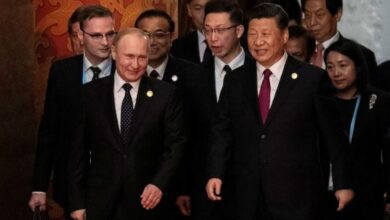Rogers is afraid to compete
By Anthony Lacavera Contributor
The federal government, and frankly all Canadians, should be very concerned about Rogers’ anti-competitive process to sell Freedom Mobile to Vidéotron as part of its proposed merger with Shaw.
When the process began, Globalive saw an opportunity to buy back Freedom Mobile, the company we founded in 2008 as WIND Mobile and operated until 2015, to bring more innovation and better pricing and services to a starved mobile market in Canada.
But preferring the interest of its shareholders and ownership to the interests of Canadians, and to the detriment of the government’s pro-competitive policies, Rogers has selectively guided the sale process of Freedom Mobile. Despite offering more than $900 million more than Vidéotron (a subsidiary of Quebecor Inc.), Globalive was blocked from the process without legitimate reason because Rogers is evidently looking to ensure that the oligopoly status quo is maintained by hand-picking a buyer in Vidéotron, which will offer the least possible competition for them and, subsequently, for Canadians.
What is clear is that Vidéotron is not a pure-play wireless carrier and as a regional cable business, it has an exposed flank that an independent operator like Globalive does not. It simply cannot afford a retaliatory strike from Rogers, Bell, or TELUS in Quebec if it genuinely competes in Ontario, B.C., and Alberta via Freedom Mobile.
Why would Rogers block Globalive from the process? Because Rogers is afraid to compete.
Competition forces incumbents to innovate, and it ultimately delivers more services and better pricing to Canadians.
Take, for example, when Globalive operated WIND Mobile. We introduced industry-changing innovation, including unlimited data and unlimited, low-fee U.S. roaming, services that are still relevant today and offered by all major incumbents. During WIND Mobile’s time in the market, average wireless prices in Ontario, B.C., and Alberta, where WIND operated, decreased by 21 per cent, translating to an average household savings of $400 per year.
These changes to Canada’s wireless industry were due to the innovation brought forth by a pure-play, independent carrier that had to compete solely using lower pricing.
And Canada isn’t the only country where this type of disruption has benefited consumers. The introduction of a pure-play wireless carrier has been proven to promote genuine competition in markets like the U.S., as demonstrated by the success of T-Mobile.
Introduced to the market as the “Un-carrier,” T-Mobile has continued to disrupt the American wireless industry, bringing U.S. consumers nearly-free international roaming, unlimited data and more transparent pricing via eliminated wireless service and access fees.
Intense national competition in the U.S. over the past 20 years, much of which was ushered in during the introduction of T-Mobile, is largely credited for why U.S. subscribers now save $130 billion (U.S.) annually in wireless plan costs, compared to pricing before T-Mobile was in the market. It’s worth noting that T-Mobile is now also the fastest growing internet provider in the U.S., all done over wireless broadband and without the need for legacy fibre or cable connections. This is what the most modern wireless service in the world looks like.
By contrast, Canada is in the Dark Ages and consumers are paying the price. Literally.
If Globalive succeeds to buy back the business we started, we will operate as the independent pure-play carrier Canadians need and deserve, building on the innovation created during the WIND era, developing greater industry competition, and bring Canadians more affordable and new wireless services.
Rogers says the Quebecor deal will “ensure the continuation of a highly competitive market,” but in what universe does it make sense for Rogers to be able to choose their own competitor? Government intervention is needed for this exact reason.
The Commissioner of Competition has held firm in enforcing the Competition Act by blocking the merger of Rogers and Shaw because he knows how anti-competitive it is. We are confident that the actions of Minister of Innovation, Science and Industry François-Philippe Champagne will reflect this as well. Respected industry authorities, such as John Lawford, executive director of the Public Interest Advocacy Centre, have also recently identified the lack of competition that Vidéotron would bring to the market, reiterating the facts that we know to be true.
Globalive will continue to advocate for the best possible buyer for this business, leading the charge to bring true competition and innovation to Canada’s wireless industry, and shining a light on this flawed process that could ultimately end up cheating Canadians out of what is in their best interest.




